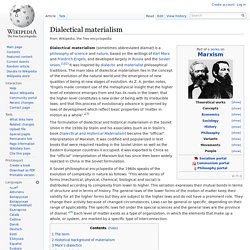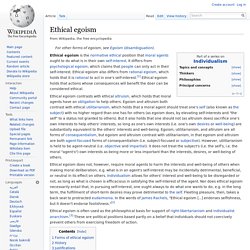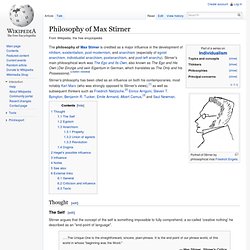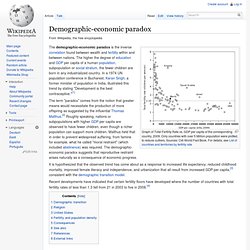

MATHCURVE.COM. Urban dictionnary. Exploitation film. Dialectical materialism. Dialectical materialism (sometimes abbreviated diamat) is a philosophy of science and nature, based on the writings of Karl Marx and Friedrich Engels, and developed largely in Russia and the Soviet Union.[1][2] It was inspired by dialectic and materialist philosophical traditions.

The main idea of dialectical materialism lies in the concept of the evolution of the natural world and the emergence of new qualities of being at new stages of evolution. As Z. A. Jordan notes, "Engels made constant use of the metaphysical insight that the higher level of existence emerges from and has its roots in the lower; that the higher level constitutes a new order of being with its irreducible laws; and that this process of evolutionary advance is governed by laws of development which reflect basic properties of 'matter in motion as a whole'.
The term[edit] The exact term was not used by Marx in any of his works, and controversy exists regarding the relationship between dialectics, ontology, and nature. Ethical egoism. Ethical egoism is the normative ethical position that moral agents ought to do what is in their own self-interest.

It differs from psychological egoism, which claims that people can only act in their self-interest. Ethical egoism also differs from rational egoism, which holds that it is rational to act in one's self-interest.[1] Ethical egoism holds that actions whose consequences will benefit the doer can be considered ethical. Ethical egoism is often used as the philosophical basis for support of right-libertarianism and individualist anarchism.[3] These are political positions based partly on a belief that individuals should not coercively prevent others from exercising freedom of action.
Forms of ethical egoism[edit] Ethical egoism can be broadly divided into three categories: individual, personal, and universal. History[edit] Ethical egoism was introduced by the philosopher Henry Sidgwick in his The Methods of Ethics, written in 1874. Justifications[edit] Notable proponents[edit] Stirnerism. The philosophy of Max Stirner is credited as a major influence in the development of nihilism, existentialism, post-modernism, and anarchism (especially of egoist anarchism, individualist anarchism, postanarchism, and post-left anarchy).

Stirner's main philosophical work was The Ego and Its Own, also known as The Ego and His Own (Der Einzige und sein Eigentum in German, which translates as The Only and his Possessions). [citation needed] Stirner's philosophy has been cited as an influence on both his contemporaries, most notably Karl Marx (who was strongly opposed to Stirner's views),[1] as well as subsequent thinkers such as Friedrich Nietzsche,[2] Enrico Arrigoni, Steven T. Byington, Benjamin R. Tucker, Emile Armand, Albert Camus,[3] and Saul Newman. Thought[edit] The Self[edit] Stirner argues that the concept of the self is something impossible to fully comprehend; a so-called 'creative nothing' he described as an "end-point of language". ... Egoism[edit] ... Ordoliberalism. Demographic-economic paradox.
Graph of Total Fertility Rate vs.

GDP per capita of the corresponding country, 2009. Only countries with over 5 Million population were plotted, to reduce outliers. Sources: CIA World Fact Book. For details, see List of countries and territories by fertility rate The demographic-economic paradox is the inverse correlation found between wealth and fertility within and between nations. The term "paradox" comes from the notion that greater means would necessitate the production of more offspring as suggested by the influential Thomas Malthus.[2] Roughly speaking, nations or subpopulations with higher GDP per capita are observed to have fewer children, even though a richer population can support more children.
Recent developments have indicated that certain fertility floors have developed where the number of countries with total fertility rates of less than 1.3 fell from 21 in 2003 to five in 2008.[4] Demographic transition[edit] Religion[edit] United States[edit] Combat index.